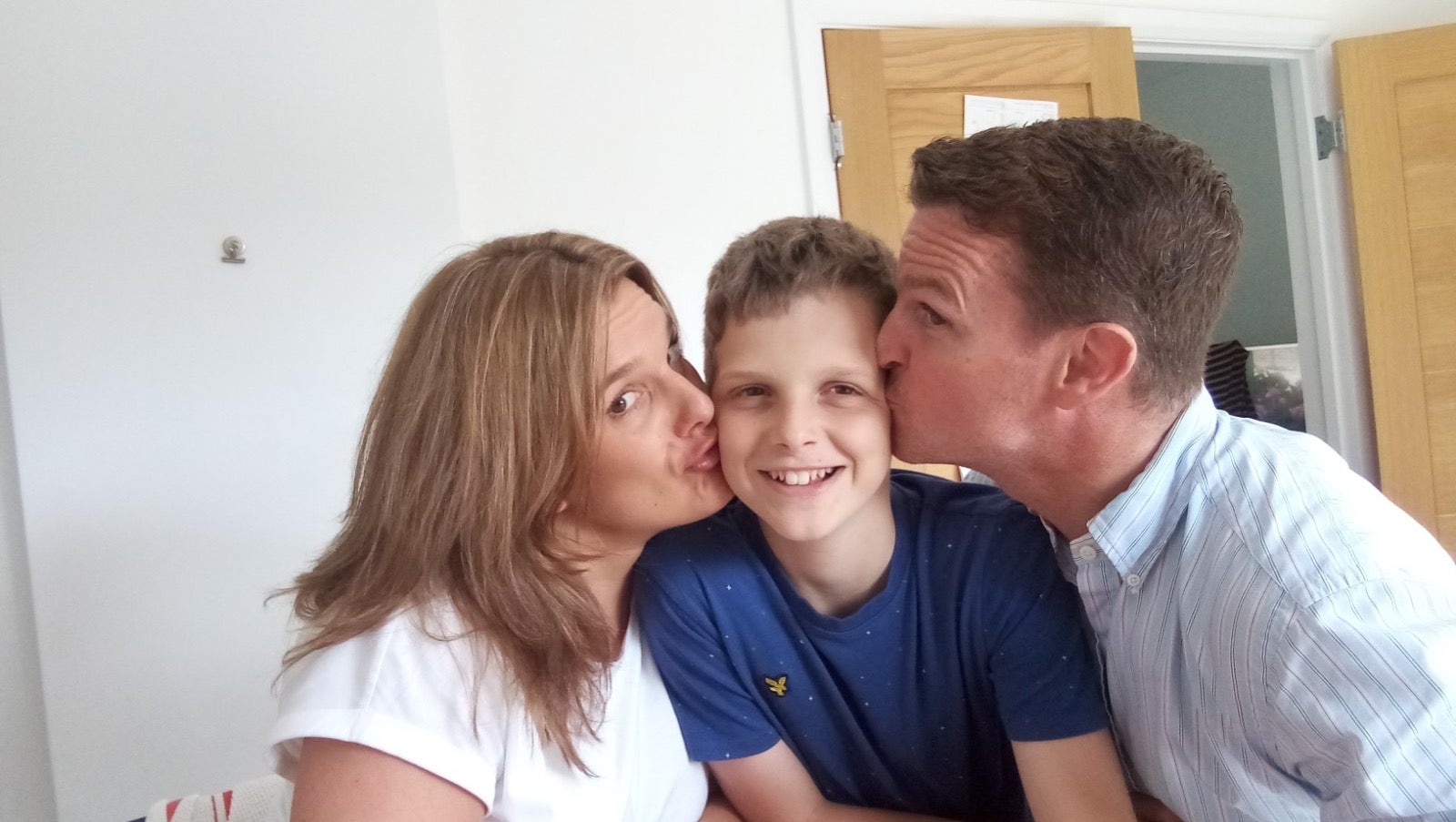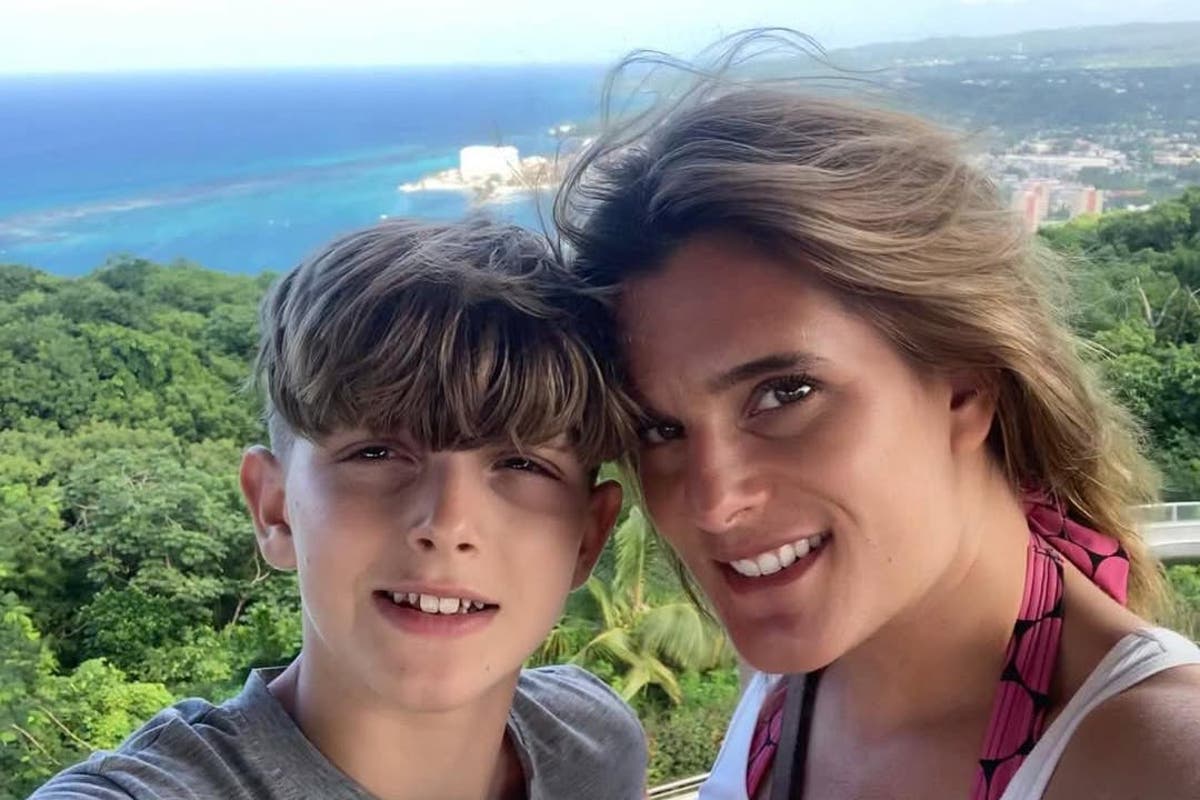A mother who is battling social media companies for answers over her 14-year-old son’s death is demanding action from MPs as they debate her proposed changes to online safety law in the House of Commons on Monday.
Ellen Roome, 48, has been left not knowing why her son Jools Sweeney died for years, after she found his body in his room on 13 April 2022, having spoken with him on the phone earlier in the evening when he told her he had been playing football with his friends and said his last words to her: “Love you.”
The 48-year-old, from Cheltenham, said she and Jools’s father Matt Sweeney left the inquest into their child’s death with no explanation of what happened, with the coroner not ruling Jools died by suicide because she said they could not prove he was in a “suicidal mood”.
Ms Roome thinks he could have taken part in a “sinister” online challenge that went devastatingly wrong.
However, without full access to his social media data, she has no way of knowing with any certainty what happened to her child – so she has been campaigning for changes to online safety law ever since, with her petition on the issue now being debated in parliament.

An “exhausted, excited, nervous, emotional” Ms Roome told The Independent just before the debate on Monday: ”I’m just trying to hold it together today – I hope I dont burst into tears after the debate, I just feel really emotional.
“Jools died two-and-a-half years ago. In light of what’s happened, I’ve learned an awful lot about online activity that I was very naive about before. I thought Jools was merrily watching silly dance videos, or harmless challenges like standing on your hands and pulling your t-shirt upside down. I now know there’s masses of harmful and illegal content.
“[Online safety law changes] can’t come soon enough. I don’t want any other family going through what we will have to for the rest of our lives.”
The Online Safety Act went some way to improving protection for people online when it was introduced in 2023, and it is set to be further strengthened by the Data Bill currently making its way through parliament. Coroners investigating children’s deaths are now able to access their online data, require platforms to preserve it, and share the material with their families when appropriate – but parents still do not have direct access to the information.
While praising the reforms for offering some help to bereaved families, Ms Roome hopes the debate of her petition will address gaps she has identified.

Ms Roome, who is a member of the Bereaved Parents for Online Safety group, is calling for it to be compulsory for social media companies to preserve the data of anyone who dies in unusual circumstances, not just in cases when a coroner or the police request this. She is also demanding that parents, not just authorities, have access to this data, and that parents with children who have already died be included in this access.
“I’m hoping someone will take something forward,” she said. “There need to be action after [the debate], otherwise it’s been completely pointless. And I don’t want it being said [the petition] is irrelevant, because there’s gaps in [the law].”
Ms Roome said the only social media company she managed to get some data from was Meta, and even then it was only Jools’ browsing history and messages.
She said: “I just feel that if the social media companies actually had any morals or care they could help me, but they don’t seem to care.”
A spokesperson for Meta, the company that owns Instagram and Facebook, previously said: “We are in touch directly with Ms Roome and will cooperate fully with any law enforcement investigation, including responding to any data requests.”

The Independent understands Snapchat has enabled Ms Roome to access the messages still visible in her son’s account, while deleted messages get deleted from the company’s servers and are no longer available, with Snapchat willing to cooperate with any requests from authorities for additional data to the fullest extent possible.
TikTok said it met with Ms Roome to explain to her that it no longer has Jools’s search history because the law requires certain companies to delete people’s personal data unless it is needed for running a business. The company said a valid request from law enforcement is among the exceptions to this legal requirement, but the police did not contact it until 2024, when his TikTok information was no longer available.
Ms Roome said it is unclear why neither Gloucestershire Coroner nor Gloucestershire Police requested all of Jools’ social media search history from the tech companies when he died – and she fears it could now have been deleted. The coroner declined The Independent’s request for comment, while the force said it was limited by legislation.
A spokesperson for Gloucestershire Constabulary added: “As part of [an investigation into the cause of his death,] Jools’ phone was given to police and a review of the contents took place, as well as the manual review of a TikTok account. Nothing was found as part of these searches to provide any answers.
“Police are limited in what lines of enquiry can be taken to access private social media accounts hosted by private companies due to legislation, which states that you have to be proving or disproving an indictable offence, which is not applicable in this case and therefore there was no legal basis to apply for a production order.”
A government spokesperson said: “No family should have to experience the devastating consequences of losing a child. From this summer, the Online Safety Act will introduce strong safeguards to protect children from harmful content online, including material encouraging dangerous stunts and challenges. We expect these laws to make the online world safer but will not hesitate to go further, acting on the evidence to ensure parents have peace of mind knowing their children can grow up safer online.
“In tragic cases where a child’s death is linked to social media, under the Online Safety Act coroners will have the power to demand relevant data from platforms when investigating the death of a child. We recently strengthened these measures through new data laws to ensure information can be preserved after a child’s death to help bereaved families get the answers they need.”
The Independent has approached Meta for further comment.
You can speak to the Samaritans in confidence on 116 123 (UK and ROI), or email [email protected]. If you are in another country, you can visit www.befrienders.org to find a helpline near you.


